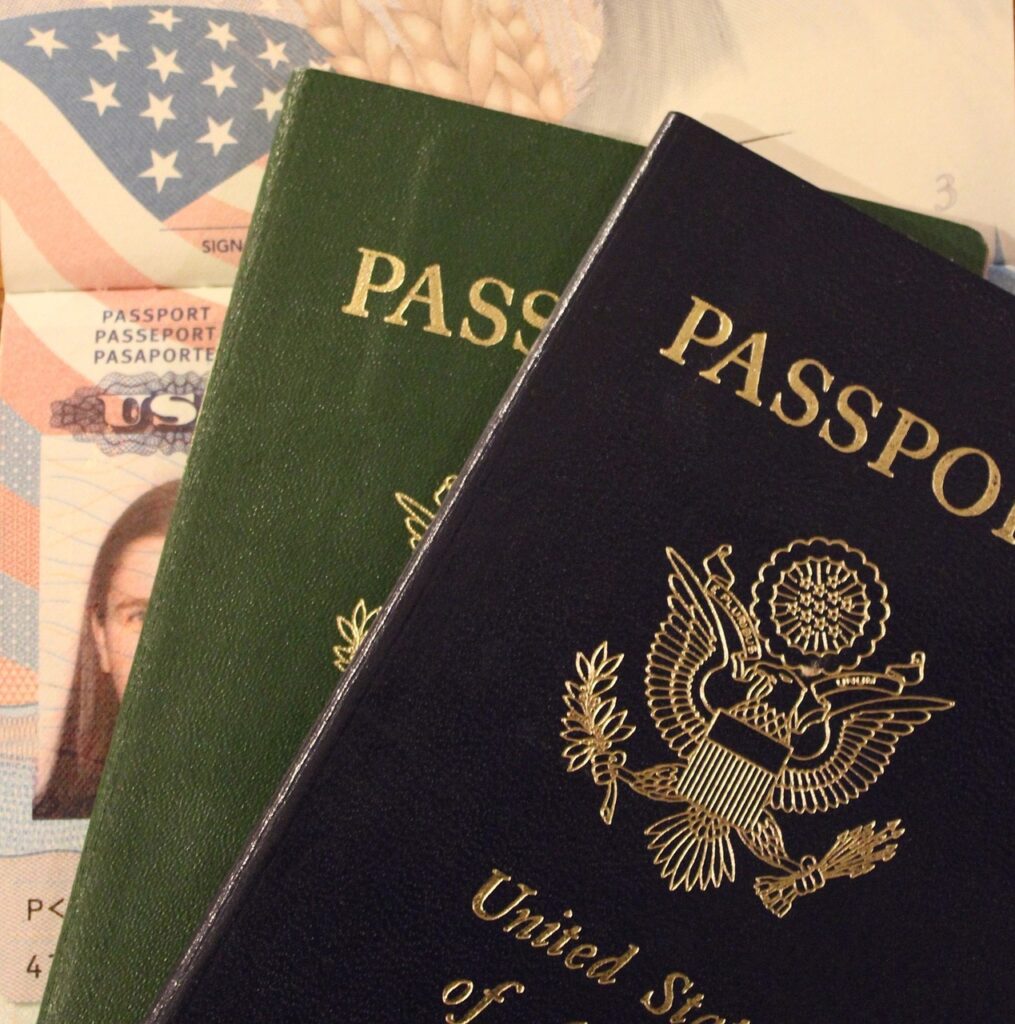Visa Guide
Can You Leave The UK And Come Back In?
Can you leave the UK and come back in? Find out the visa requirements, residency status, and re-entry procedures in this comprehensive guide.
Imagine you’re sitting in a cozy British pub, enjoying a hearty meal and chatting with newfound friends. As the conversation takes a turn towards exploring new horizons, the question arises: can you leave the UK and come back in? Whether you’re a curious traveler or a hopeful migrant, understanding the intricacies of leaving and re-entering the United Kingdom is essential. In this article, we’ll unravel the mysteries around this topic, providing you with all the information you need to navigate the process seamlessly and make your travel dreams a reality. So, fasten your seatbelt and embark on this enlightening journey with us.

This image is property of pixabay.com.
Visa Requirements for Leaving and Returning to the UK
When it comes to leaving and returning to the UK, there are certain visa requirements that you need to be aware of. These requirements vary depending on your visa status, the validity of your entry clearance, and your residency status. Understanding these requirements is crucial to ensure a smooth travel experience and avoid any legal issues. In this comprehensive guide, we will walk you through the visa requirements for leaving and returning to the UK.
Visa Status
Your visa status is a determining factor in whether you can leave the UK and return without any complications. If you hold a valid visa or entry clearance, you are generally allowed to travel in and out of the country during its validity period. It’s important to keep in mind that certain visa types, such as visitor visas, have restrictions on the duration of stay and how frequently you can enter and leave the UK. Therefore, it’s essential to familiarize yourself with the terms and conditions of your specific visa.

Validity of Entry Clearance
The validity of your entry clearance is another crucial aspect to consider before leaving the UK. Entry clearance refers to the permission granted to enter the country and is usually indicated by a visa vignette in your passport. The entry clearance will have an expiration date, and it’s important to ensure that you do not exceed this date if you plan to return to the UK. In case your entry clearance expires while you are abroad, you may need to apply for a new visa or entry clearance before returning.
⚠️ Beware of Jobs and VISA Scams – Read our guides carefully and APPLY directly using our links and buttons. Application is free! Don’t pay anyone claiming to be a travel or Job Agent!
Residency Status
Your residency status in the UK plays a significant role in determining the requirements for leaving and re-entering the country. If you are a resident with settled status or indefinite leave to remain, you have the freedom to come and go as you please, as long as you comply with the immigration rules. However, if you are a temporary resident with a visa, you need to consider the restrictions and conditions attached to your visa. It’s important to ensure that your leave to remain is still valid before leaving and returning to the UK.

This image is property of pixabay.com.
Leaving the UK
When it’s time to leave the UK, there are certain steps you need to take to ensure a smooth departure.
Travel Documentation
Before you leave the UK, it’s crucial to have all the necessary travel documentation in order. This includes a valid passport, visa or entry clearance if required, and any other supporting documents specific to your situation. Make sure to double-check the expiration dates and validity of your documents to avoid any last-minute surprises.
Informing Authorities
In certain situations, it might be necessary to inform the authorities about your departure. If you are on a specific visa category that requires you to provide updates on your travels, such as Tier 2 work visa holders, it’s important to follow the regulations and notify the relevant authorities before leaving. Additionally, if you have any pending immigration applications or ongoing legal issues, it’s advisable to consult with an immigration lawyer before leaving the UK.
Length of Absence
The length of your absence from the UK can have implications on your visa status and future applications. If you plan to be away from the UK for an extended period, it’s important to consider any visa restrictions or conditions that may apply. Some visa categories have specific rules regarding the maximum duration of absence from the UK, and exceeding these limits can lead to complications when returning. It’s advisable to familiarize yourself with the rules and regulations specific to your visa category and seek legal advice if necessary.
Re-entering the UK
Returning to the UK after a trip abroad involves certain procedures and requirements. Understanding the re-entry process is essential to ensure a hassle-free return.
Returning Residents
As a returning resident of the UK, you will need to present your valid passport and any necessary travel documents upon arrival. If you hold settled status or indefinite leave to remain, you can re-enter the UK without any visa or entry clearance requirements. However, it’s advisable to carry evidence of your residency status, such as a Biometric Residence Permit (BRP), to facilitate the entry process.
Entry Clearance
If you hold a visa or entry clearance that is still valid, you can generally re-enter the UK using the same visa. However, it’s important to verify the expiration date of your visa before returning to ensure that it is still valid. In case your visa has expired, you may need to apply for a new visa or entry clearance before returning to the UK.
Border Control Procedures
Upon arrival at the UK border, you will need to go through the standard border control procedures. This typically involves presenting your passport, visa or entry clearance, and answering any questions from the immigration officer. It’s essential to be prepared to provide any necessary information or documentation regarding your trip, purpose of visit, and any changes in your circumstances since your last entry.

This image is property of pixabay.com.
Exceptions to Re-entry
While most individuals can leave and re-enter the UK without major complications, there are some exceptions that you should be aware of.
Deportation or Removal
If you have been deported or removed from the UK, you may face significant difficulties in re-entering the country. Deportation or removal orders can result from serious immigration breaches, criminal activities, or security concerns. If you fall into this category, it’s crucial to seek legal advice before attempting to re-enter the UK, as you may need to apply for special permission or waivers.
Breaching Immigration Rules
If you have previously breached the immigration rules, such as working without permission or overstaying your visa, re-entering the UK can be challenging. Past immigration offenses can lead to visa refusals or stricter scrutiny at the border. It’s essential to rectify any immigration breaches and seek legal guidance to understand the implications and options for re-entry.
Overstaying
If you have overstayed your visa in the past, it’s crucial to address this issue before leaving and planning your return. Overstaying your visa can lead to significant consequences, such as future visa refusals or bans from re-entering the UK. It’s important to consult with an immigration lawyer to explore potential solutions and ensure that you comply with the immigration rules.
Implications for Leave to Remain
Leaving and returning to the UK can have implications for your leave to remain and future applications.
Effects on Visa Validity
Leaving the UK does not automatically invalidate your visa or entry clearance. However, it’s important to keep in mind the expiration dates and conditions of your visa to avoid any issues when returning. If your visa expires while you are abroad, you may need to apply for a new visa or entry clearance before returning to the UK.
Implications for Settlement
If you are on a path towards settlement in the UK, such as for indefinite leave to remain or British citizenship, your periods of absence from the UK can affect your eligibility. Excessive absences from the UK, especially for extended periods, can interrupt the continuity of your residence and potentially impact your settlement application. It’s crucial to review the specific guidelines and requirements for settlement in your visa category and seek legal advice if needed.
Impact on Indefinite Leave to Remain
If you already have indefinite leave to remain (ILR) in the UK, leaving the country for an extended period can potentially affect your ILR status. Under the current rules, if you remain outside the UK for more than two continuous years, your ILR status may be considered to be automatically abandoned. It’s important to familiarize yourself with the rules and exceptions regarding ILR absences and consult with an immigration lawyer to ensure the preservation of your ILR status.
Traveling within the Common Travel Area
The Common Travel Area (CTA) includes the UK, Republic of Ireland, and the Crown Dependencies of Guernsey, Jersey, and the Isle of Man. The CTA allows for simplified travel arrangements between these jurisdictions.
Ireland and the UK
If you are traveling between the UK and the Republic of Ireland, you do not need a passport or visa to enter or leave. You can use your national ID card or another form of acceptable identification. However, it’s important to note that there may be additional requirements if you plan to travel to or from Northern Ireland, as it is part of the UK.
Guernsey, Jersey, and the Isle of Man
Traveling between the UK and Guernsey, Jersey, or the Isle of Man generally does not require a passport, visa, or entry clearance. However, it’s advisable to carry a form of identification, such as a passport or national ID card, to facilitate the entry process. It’s important to check the specific travel requirements and regulations of these jurisdictions before planning your trip.
Impact of Brexit
Brexit has resulted in significant changes to immigration rules, which may have implications for leaving and returning to the UK.
Transition Period
During the transition period that ended on December 31, 2020, the previous rules and regulations regarding freedom of movement still applied. As of January 1, 2021, new immigration rules came into effect, introducing a points-based system and different regulations for EU and non-EU citizens. It’s crucial to stay updated on the latest immigration changes and consult with an immigration lawyer to understand the specific requirements for leaving and returning to the UK post-Brexit.
Changes in Immigration Rules
Brexit has brought about several changes in immigration rules, including the introduction of the new points-based system. These changes can impact your ability to enter and remain in the UK. It’s essential to familiarize yourself with the new rules and requirements specific to your visa category or citizenship status. Seeking legal advice can help ensure that you navigate the post-Brexit immigration landscape effectively.
COVID-19 Travel Restrictions
In light of the ongoing COVID-19 pandemic, additional travel restrictions and regulations have been implemented to protect public health.
Government Guidelines
To stay updated on the latest travel restrictions, it’s important to refer to the guidelines provided by the UK government and relevant authorities. These guidelines may include quarantine requirements, COVID-19 testing obligations, and specific entry procedures. It’s crucial to comply with these guidelines to ensure a safe travel experience and minimize the risk of transmission.
Quarantine and Testing Requirements
Depending on the country you are traveling from or have transited through, you may be subject to quarantine and testing requirements upon arrival in the UK. It’s important to review the latest information regarding quarantine duration, testing providers, and any exemptions that may apply. Compliance with these requirements is essential to avoid legal penalties and protect public health.
Dual Citizenship and Re-entry
If you hold dual citizenship and have multiple passports, it’s important to understand the implications for re-entry into the UK.
Dual Nationality
If you hold British citizenship alongside another nationality, you have the right to enter and live in the UK without any visa requirements. As a British citizen, you can use your British passport to re-enter the country. However, it’s important to note that using your non-British passport when entering the UK may have implications, as it could be seen as an attempt to bypass immigration checks.
Using Different Passports
If you hold a non-British passport and have valid immigration status in the UK, you can use your non-British passport to exit and re-enter the country. However, it’s crucial to provide your valid immigration documents, such as a Biometric Residence Permit, upon re-entry to demonstrate your legal status in the UK. It’s advisable to carry both passports when traveling to facilitate the entry process.
Conclusion
Understanding the visa requirements for leaving and returning to the UK is essential for a smooth and hassle-free travel experience. By familiarizing yourself with your visa status, the validity of your entry clearance, and your residency status, you can ensure compliance with the immigration rules and avoid any legal complications. Additionally, staying updated on travel regulations, including COVID-19 restrictions and post-Brexit changes, is crucial to plan your trips accordingly. If you have any doubts or concerns, it’s advisable to consult with an immigration lawyer who can provide personalized guidance based on your specific circumstances. Happy travels!
Disclosure: Our content is reader-supported. If you click certain links, we may earn a commission. Learn more about our funding and editorial process.

